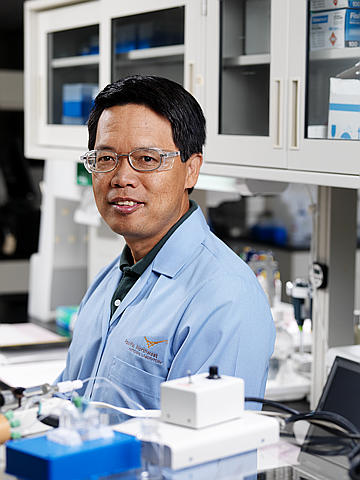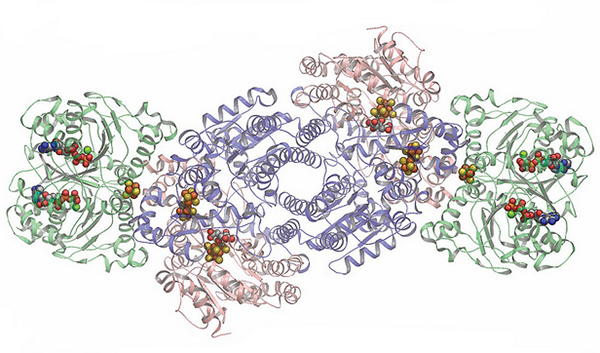The Institute for Integrated Catalysis at Pacific Northwest National Laboratory facilitates collaborative research and development in catalysts for a secure energy future.
-
Yuehe Lin Named Among Most Influential Scientists in the World
Kudos to Yuehe Lin, a Laboratory Fellow at Pacific Northwest National Laboratory, for being included on the 2016 Highly Cited Researcher list from Clarivate Analytics (formerly Thomson Reuters). Lin, who has 360 publications to his credit, also appeared on the list in 2014 and 2015.
-
Morris Bullock Selected as AAAS Fellow
Congratulations to Dr. Morris Bullock, Director of the Center for Molecular Electrocatalysis and member of the Institute for Integrated Catalysis at Pacific Northwest National Laboratory, on being elected to the rank of fellow of the American Association for the Advancement of Science.
-
Of Catalysts and Coke
Catalysts known as zeolites are vital to fuel production and other processes. Coke deposits in zeolites are a costly problem in petroleum refinement and in petrochemical production. To explore ways to fix the issue, Karthikeyan Ramasamy and other researchers from PNNL, with help from Lawrence Berkeley National Laboratory, zoomed in at the highest resolution yet on these problematic carbon-based deposits.
-
A Cooperative Way to Make Ammonia
A better understanding of how bacteria fix nitrogen molecules into ammonia could lead to energy savings in industrial processes such as those that produce fertilizer. Researchers are studying the bacterial enzyme that does this, a complicated enzyme called nitrogenase. In new work, researchers discovered essential information about the manner in which nitrogenase produces ammonia, according to work published in the Proceedings of the National Academy of Sciences.
-
PNNL to Partner with University of Oregon
A new agreement between DOE's Pacific Northwest National Laboratory and the University of Oregon will allow scientists to obtain joint appointments that bridge the two research institutions. The agreement paves the way for greater collaboration between the two institutions. The initial commitment of the joint appointment agreement is focused on chemistry, biochemistry and materials science.
- Storing electric energy in hydrogen (a focus of the Center for Molecular Electrocatalysis, an Energy Frontier Research Center)
- Adding hydrogen to oxo-functionalized carbon resources (that is, biomass constituents or CO2)
- Manipulating carbon-carbon and carbon-heteroatom bonds
- Exhaust catalysis





